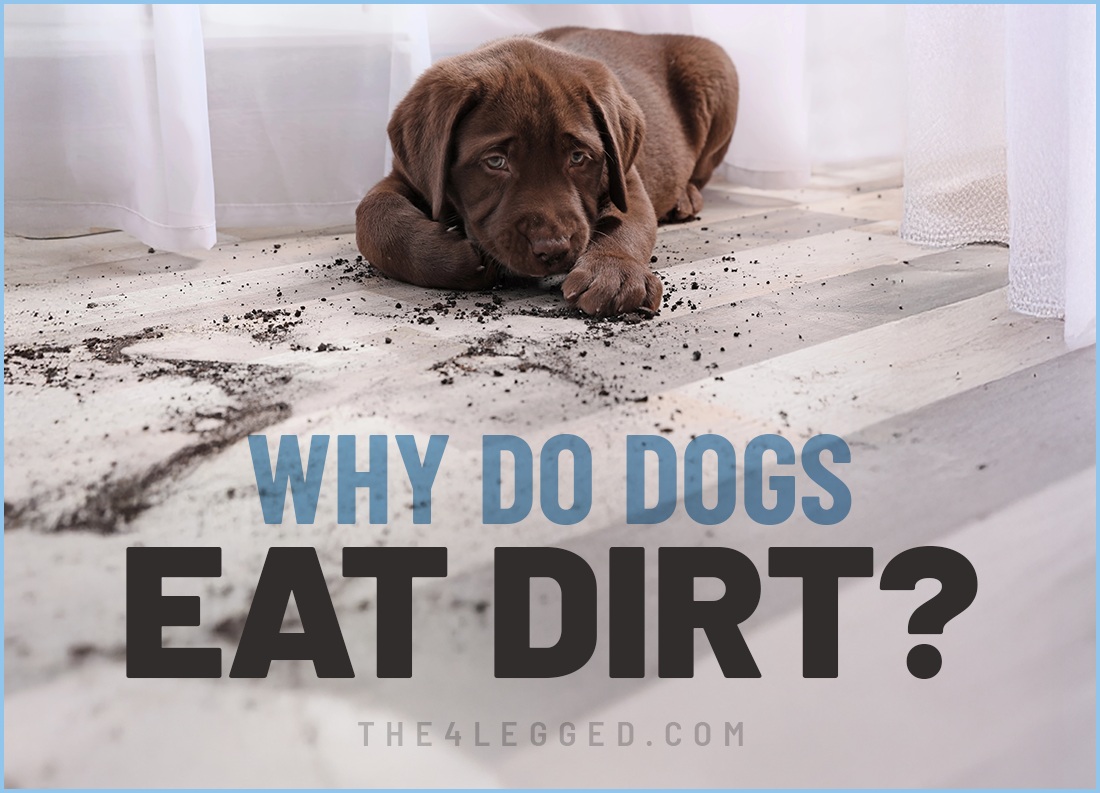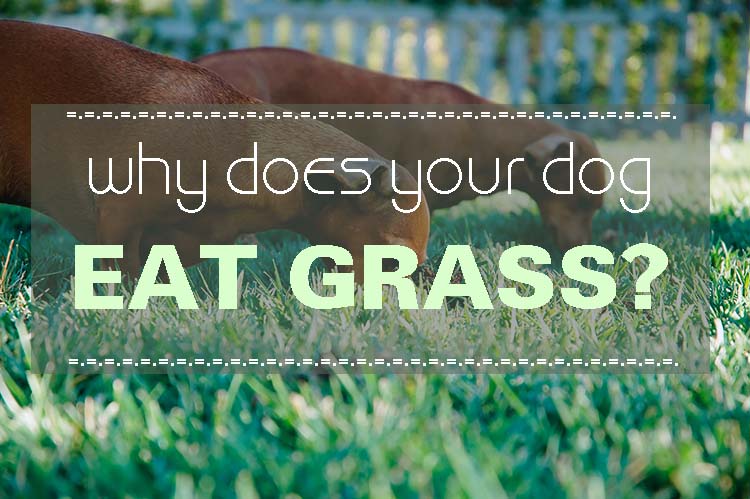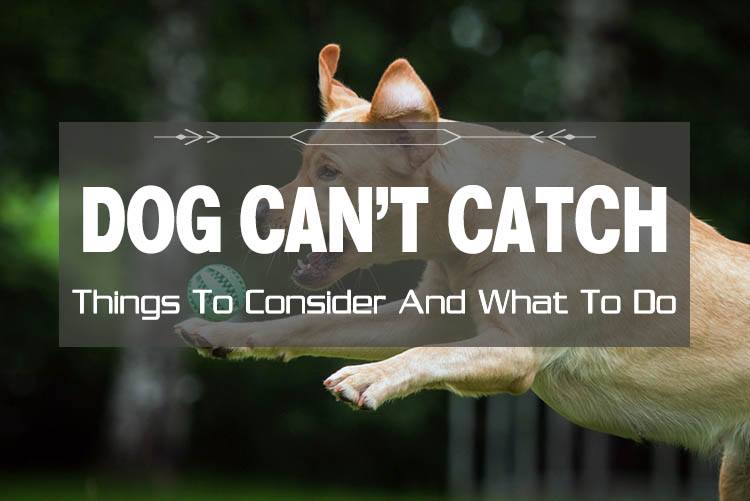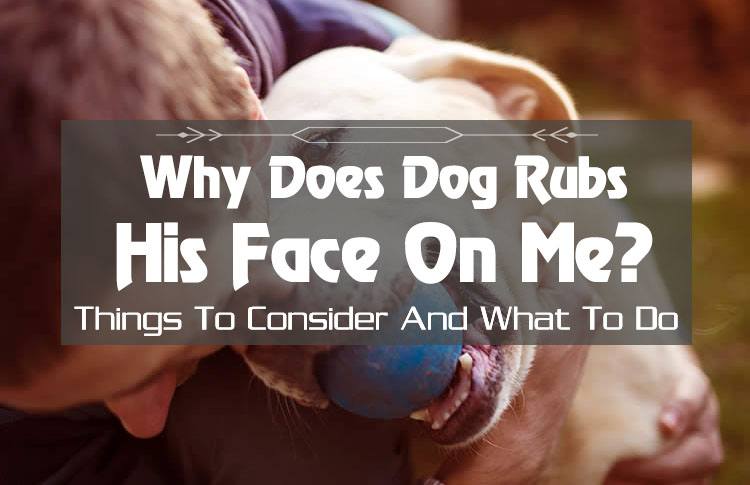Have you ever looked at your dog and wondered, why do dogs eat dirt? This odd but surprisingly common behavior can be caused by curiosity, nutritional deficiencies, or even behavioral issues like boredom or anxiety. While it might seem harmless at first, eating dirt can expose your dog to toxins, parasites, and other health risks.
Understanding why dogs eat dirt helps you recognize when it’s simply a passing habit and when it signals something more serious. In this guide, we’ll explore the main causes, possible health concerns, and effective ways to stop this behavior to keep your dog happy and healthy.
Key Takeaways
- Dogs eat dirt due to curiosity, nutritional deficiencies, or behavioral issues, and it’s important to monitor this habit.
- Dirt-eating can lead to serious health risks, including gastrointestinal obstructions, exposure to harmful substances, and dental damage.
- Solutions to prevent dirt eating include improving diet, increasing exercise and mental stimulation, and seeking professional training or veterinary support if needed.
Common Reasons Dogs Eat Dirt
Dogs eat dirt for a variety of reasons, ranging from simple curiosity to more complex nutritional or behavioral issues. A dog’s desire to eat dirt may also be driven by medical or chronic health conditions, such as nutritional deficiencies or underlying health issues. Understanding these reasons is the first step in addressing the behavior effectively. Dog eat dirt.
This article delves into the primary reasons: curiosity and exploration, nutritional deficiencies, dietary deficiencies, nutritional deficiency, nutritional imbalance, food related, and behavioral issues.
Curiosity and Exploration
Dogs are naturally curious creatures. Their desire to explore their environment often leads them to use their mouths as a primary tool of discovery, which can include eating dirt. A dog’s mouth is a key tool for curiosity and learning about their environment. For some dogs, the soil’s texture or scent might be particularly intriguing, triggering their dog’s dirt eating habit. This behavior is usually harmless unless it becomes excessive.
Sometimes, food particles or appealing scents in the soil can attract dogs, making them want to taste or eat it. While testing dirt is a normal behavior for dogs, it’s essential to monitor this habit. If your furry friend is frequently eating dirt, it might be a sign of an underlying issue that needs addressing.
Nutritional Deficiencies
Nutritional deficiencies are a significant reason why dogs might eat dirt. When a dog’s diet lacks essential minerals like sodium, iron, or calcium, they might turn to soil to find these missing nutrients. Deficiencies in a dog’s diet can prompt them to seek out dirt as a source of missing nutrients. This behavior is their body’s way of seeking out the minerals and vitamins they need to stay healthy.
A balanced diet with all necessary nutrients can significantly reduce your dog’s dirt-eating behavior. High-quality dog food and proper nutrition are crucial in maintaining your dog’s overall health and preventing them from seeking out nutrients in the soil.
Behavioral Issues
Dirt eating in dogs can be triggered by behavioral issues. Common factors include:
- Boredom
- Anxiety
- Stress A lack of physical exercise or mental stimulation can lead to boredom, prompting dogs to engage in odd behaviors like dirt eating. Keeping your dog engaged with adequate exercise and enrichment activities can prevent this behavior.
Separation anxiety from their owners or other stressors can lead to severe anxiety, which might manifest as dirt-eating behavior. If a dog suffers from severe anxiety or distress, consulting a veterinarian or professional trainer is important to address the dog’s well-being. Young dogs can develop anxiety at any age, and addressing these behavioral issues often requires a combination of increased stimulation and, in some cases, professional help.
Medical Conditions Leading to Dirt Eating
Dogs may eat dirt due to underlying medical conditions. This behavior can indicate a potential health issue. Underlying health issues such as gastrointestinal conditions, parasitic infections, or circulatory problems may be responsible for this behavior. Disorders such as gastrointestinal issues, parasites, and eating disorders like pica can lead to this behavior. Additionally, when a dog eats dirt, it may signal a need for attention or nutrients.
Consulting a veterinarian at a local animal hospital is crucial if you suspect a medical condition behind your dog’s dirt-eating habit.
Gastrointestinal Disorders
Gastrointestinal disorders such as gastritis and inflammatory bowel disease (IBD) can cause dogs to eat dirt due to digestive discomfort. Dogs may instinctively eat dirt to soothe an upset stomach, as it can provide temporary relief from nausea or gastrointestinal stress. Frequent dirt eating may suggest ongoing digestive problems. These issues should be addressed by a veterinarian.
In some cases, eating dirt can lead to more severe problems like blockages from foreign objects. If your dog is consistently eating dirt, it’s essential to consult a vet to rule out any underlying gastrointestinal disorders and prevent potential complications.
Parasites and Toxins
Parasites and toxins present in the soil can also lead to dirt-eating behavior in dogs. Common soil-dwelling parasites include intestinal parasites such as:
- Hookworms
- Tapeworms
- Roundworms
- Giardia
These parasites can cause serious health issues like anemia and malnutrition. In addition to intestinal parasites, flea infestation and heartworm disease are other parasitic conditions that can lead to anemia and other health problems in dogs. Preventing these parasites through regular veterinary care and year-round parasite prevention is essential for your dog’s health. They can significantly impact a dog’s health, making it crucial to consult a veterinarian if your dog is eating dirt or if you notice your dog eat soil to ensure proper diagnosis and treatment.
Soil can also be contaminated with harmful substances like pesticides, fertilizers, and toxins that pose serious health risks to dogs. Monitoring your dog’s favorite dirt-eating areas and limiting their access to potentially contaminated soil is essential to safeguard their health.
Pica and Other Eating Disorders
Pica is an eating disorder where dogs consume non-food items like dirt. This behavior is known as geophagia when it specifically involves eating soil. Some dogs purposely eat dirt, and this behavior is often linked to nutritional deficiencies, behavioral issues, or medical conditions. Poor diets or medical conditions can lead to pica, causing dogs to seek out and consume items that aren’t food.
If your dog is diagnosed with pica, a veterinarian might run diagnostic tests such as:
- Blood work
- Urine/feces evaluation
- Imaging
- Tissue samples
These tests help determine the underlying medical condition and appropriate treatment. Addressing pica often requires a combination of dietary adjustments and medical interventions, particularly when considering any related medical issues.
Health Risks Associated with Dirt Eating
Eating dirt can pose several health risks to dogs, ranging from gastrointestinal obstructions to exposure to harmful substances and dental damage. Understanding these risks is crucial for any pet parent to ensure their dog’s health and well-being. Protecting your dog’s health means addressing both behavioral and nutritional causes of dirt eating to prevent exposure to toxins and parasites.
Gastrointestinal Obstructions
Start eating dirt frequently can lead to gastrointestinal obstructions that may require emergency surgery. Consuming excessive amounts of dirt can cause blockages in the digestive tract, leading to symptoms like pain, vomiting, and dehydration. These obstructions can include: eating dirt bad
- Dirt
- Rocks
- Sticks
- Other foreign bodies stuck in the digestive system.
If a dog ingests a foreign body ingestion, it’s crucial to:
- Call a veterinarian immediately.
- Be aware that in severe cases, emergency surgery may be necessary to remove the blockage and prevent further complications.
- Monitor your dog’s behavior and seek veterinary help promptly, as this can make all the difference.
Exposure to Harmful Substances
Dirt can be contaminated with harmful substances like pesticides, fertilizers, and toxins, posing serious health risks to dogs. These chemicals can lead to gastrointestinal distress and toxicity, making it essential for dog owners to monitor their pets and limit their access to potentially contaminated areas.
Exposure to these harmful substances can cause serious health problems in dogs, including vomiting, diarrhea, and lethargy. Avoiding contaminated soil is essential for your dog’s health and well-being. Preventing dirt eating is crucial for protecting dogs from ingesting harmful substances such as toxins and parasites, and for maintaining their overall health.
Dental Damage and Oral Injuries
Consuming dirt can cause dental damage and oral injuries in dogs. Hard particles in the soil can lead to tooth fractures, resulting in further complications like infections and chronic pain. Monitoring your dog’s behavior and providing appropriate chew toys can help prevent dental damage.
Keeping an eye on your dog’s mouth and dog’s teeth is essential to spot any signs of damage early on. Taking preventive measures can protect your dog’s teeth and overall health.
Solutions to Prevent Your Dog From Eating Dirt
Preventing your dog from eating dirt involves a combination of improving their diet, increasing physical and mental stimulation, and training and behavioral support to help pet parents ensure their dog stop eating dirt.
It’s also important to assess your dog’s dirt habit to determine if underlying health issues, such as nutritional deficiencies or gastrointestinal problems, may be contributing to the behavior. Focusing on these areas can reduce dirt-eating behavior and enhance your dog’s overall health.
Improve Diet and Nutrition
Ensuring your dog receives a balanced and high-quality diet can address nutritional deficiencies that might lead to dirt eating. Upgrading to high-quality dog food can help supply your dog with essential minerals. Additionally, adding supplements may further enhance their vitamin intake.
Dividing daily food portions into 2-3 meals can also enhance your dog’s nutrition and reduce the urge to eat dirt. A raw diet or a nutritionally balanced diet can significantly reduce dirt-eating behavior and improve your dog’s diet and overall health.
Increase Physical and Mental Stimulation
Engaging your dog in daily play sessions can help minimize boredom and reduce the likelihood of dirt eating. Interactive toys, including a chew toy, and scent games are effective methods to keep dogs mentally stimulated and distracted from eating dirt.
Mental stimulation and adequate exercise are vital for your dog’s well-being. Keeping your dog engaged with various activities can provide enough mental stimulation to prevent them from seeking out dirt to eat.
Training and Behavioral Support
Positive reinforcement techniques can be beneficial in redirecting dogs from eating dirt to more appropriate behaviors. Rewarding desirable behaviors encourages your dog to engage in more constructive activities instead of eating dirt. Teaching dog basic commands such as ‘leave it’ and ‘drop it’ is also important, as these commands can help prevent your dog from eating dirt or other unwanted items.
If self-trained efforts to curb dirt eating are unproductive, seeking help from a professional trainer may be necessary. Consulting a dog behavior specialist can provide the appropriate treatment and support needed to address persistent dirt-eating behavior.
When to Consult a Veterinarian
When a dog’s dirt-eating behavior raises concerns, consulting a veterinarian is crucial. If the behavior persists despite intervention efforts, or if it’s accompanied by symptoms like vomiting, diarrhea, or lethargy, immediate veterinary care should be sought.
Abnormal blood vessel development, such as portosystemic shunts, can cause inadequate blood supply to the dog’s liver, leading to health problems that may manifest as dirt eating.
Persistent or Compulsive Behavior
If your dog’s dirt-eating habit becomes frequent or compulsive, it’s time to consult a veterinarian. Signs of intestinal blockage, such as vomiting, loss of appetite, and lethargy, require immediate attention when your dog eats dirt.
A veterinarian can help identify dietary needs and appropriate supplements for dogs eating dirt. If you suspect your dog is eating dirt due to anxiety, your vet can confirm this and discuss treatment options.
Accompanying Symptoms
Seek immediate veterinary care if your dog exhibits dog’s symptoms like vomiting, diarrhea, or lethargy after eating dirt. These symptoms could indicate serious underlying medical conditions that require prompt attention.
Should your dog exhibit severe symptoms like persistent vomiting or a lack of appetite, vet immediately for necessary veterinary attention. Quick action can prevent potential complications and ensure your dog’s health is not compromised by their dirt-eating behavior.
Summary
Understanding why dogs eat dirt is an important part of being a responsible pet parent. While some dogs do it out of curiosity or boredom, others may be signaling a nutritional imbalance, stress, or an underlying health issue. By identifying the root cause and taking steps like improving their diet, increasing mental stimulation, and consulting your veterinarian when needed, you can help your dog stay safe and healthy.
Curious about other dog behaviors and what they mean?
Explore more of our dog behavior guides to better understand your furry friend and build a stronger, happier bond every day.
Frequently Asked Questions
Why is my dog eating dirt?
Your dog might be eating dirt out of curiosity, to fill nutritional gaps, or even due to behavioral or health issues. It’s a good idea to keep an eye on this habit and consult your vet if it continues.
Dogs may also eat dirt from indoor plants, so it’s important to monitor their behavior around houseplants to ensure their safety.
Can eating dirt harm my dog?
Absolutely, eating dirt can harm your dog by causing gastrointestinal issues, possible blockages, and even dental damage. It’s best to keep an eye on their behavior to ensure they stay safe and healthy!
How can I stop my dog from eating dirt?
To stop your dog from eating dirt, focus on improving their diet and providing more physical and mental activities. Using positive reinforcement can also help redirect their behavior effectively.
When should I consult a veterinarian about my dog’s dirt-eating habit?
You should definitely consult a veterinarian if your dog’s dirt-eating becomes compulsive or is paired with symptoms like vomiting, diarrhea, or lethargy. It’s always better to check in for your pet’s health!
What are the common health risks associated with dirt eating in dogs?
Eating dirt can lead to gastrointestinal obstructions, exposure to toxic substances, and dental damage in dogs. It’s essential to keep an eye on their habits to avoid these risks!




